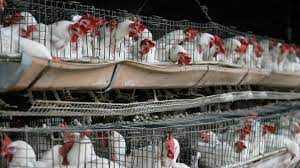World Organisation for Animal Health Approves Self Declaration of Freedom from Avian Influenza in Indian Poultry Compartments
Union Minister Shri Parshottam Rupala while interacting with media onboard while commencing the next phase of Sagar Parikrama program from Chennai stated that this is a big news and will be a game changer for our poultry sector
Posted On: 14 OCT 2023 1:14PM by PIB Delhi
In a significant development for India’s poultry industry, the World Organisation for Animal Health (WOAH) has approved India’s self-declaration of freedom from Highly Pathogenic Avian Influenza (HPAI) in specific poultry compartments. This achievement is a testament to India’s commitment to maintaining high standards of animal health and biosecurity.
Background on Zoning and Compartmentalization
Zoning and compartmentalization are strategic tools used to establish and maintain groups of animals with specific health statuses for the purposes of international trade and disease prevention or control. Compartmentalization involves defining a sub-population of animals with a specified health status within the national territory. The maintenance of this status relies on stringent management and husbandry practices that adhere to the standards outlined in the WOAH Terrestrial Code (Chapters 4.4 and 4.5) and recommendations related to specific disease chapters.
Avian Influenza in India
Highly Pathogenic Avian Influenza (HPAI), commonly known as Bird Flu, was first detected in India in the state of Maharashtra in February 2006. Since then, the country has experienced annual outbreaks of HPAI in different regions, leading to substantial economic losses. The disease has been reported in 24 states and union territories, resulting in the culling of over 9 million birds to control its spread.
India’s approach to controlling HPAI follows a “detect and cull” policy as outlined in the National Action Plan for Prevention, Control, and Containment of Avian Influenza (revised – 2021). This comprehensive response includes the humane destruction of infected and exposed animals, eggs, feed, litter, and other contaminated materials. Additionally, measures such as restricting the movement of poultry and poultry products, disinfection and clean-up of infected premises, and a Post-Operative Surveillance Plan (POSP) have been implemented. It’s important to note that vaccination against HPAI is not permitted in India.
Compartmentalization: A Key Control Measure
Despite these challenges, India has taken a proactive approach to mitigate the risks associated with HPAI by adopting the concept of poultry compartmentalization. Compartmentalization is a crucial tool that enhances animal health, reduces the risk of disease outbreaks within and outside the compartment, and facilitates the trade of poultry and poultry-related products.
Approval of Self-Declaration by WOAH
The Department of Animal Husbandry & Dairying, Government of India, has submitted a self-declaration of freedom from High Pathogenicity Avian Influenza in 26 poultry compartments to the World Organisation for Animal Health (WOAH). On October 13, 2023, the self-declaration was approved by WOAH, coinciding with World Egg Day. This declaration is now publicly available on the WOAH website here(https://www.woah.org/app/uploads/2023/10/2023-10-india-hpai-compartments-eng.pd)
These poultry compartments are located in four states of India, namely Maharashtra, Tamil Nadu, Uttar Pradesh, and Chhattisgarh. This recognition by WOAH signifies India’s commitment to international biosecurity standards and will contribute to enhancing the export potential of Indian poultry and poultry products, including meat and eggs. India, as the third-largest producer of eggs (129.60 billion) and the fifth-largest producer of poultry meat (4.47 million tonnes) globally, is poised to capitalize on this achievement.
During the 2022-23 fiscal year, India exported poultry and poultry products to 64 countries, generating revenue of 134 million USD. The approval of this self-declaration is expected to open up new opportunities for Indian poultry in the global market, contributing to the country’s economic growth.
https://pib.gov.in/PressReleaseIframePage.aspx?PRID=1967629



